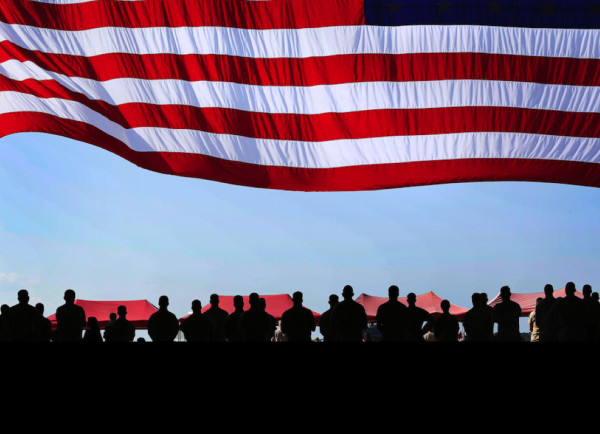

You would have to look pretty hard to find a politician or candidate who doesn’t profess staunch support for veterans. But “support the troops” rhetoric doesn’t always equal congressional action.
One of the nation’s largest veterans organizations released a series of guidelines for selecting candidates in the upcoming mid-term elections in November. Iraq and Afghanistan Veterans of America’s 2014 Veteran Voter Guide lays out six issues it considers top priorities for any prospective member of Congress.
“It’s hard to grade Congress in general,” IAVA Legislative Director Alex Nicholson told Task & Purpose. “But there is frustration with Congress’s productivity on veterans’ issues.”
The guide also provides a list of questions veterans can ask candidates running in their district, each one tied to the six issues. IAVA hopes that veterans will turn out at town hall meetings and campaign events across the country to put those questions directly to those running for office.
“As we get near the election, we are dialing back criticism of individual chambers and Congress members. We want veterans to ask questions about these specific areas directly to candidates,” Nicholson said.
Here is a look at the six most pressing issues facing veterans, according to IAVA.
1. Suicide: It has been widely reported that an average of 22 veterans commit suicide every day. Despite the dire need for prevention services, the Department of Veterans Affairs has been highly criticized for its dysfunctional mental health care. IAVA has been heavily promoting the Clay Hunt Suicide Prevention for American Veterans Act. The bill would expand eligibility for veterans who served in combat operations dating back to the Gulf War, incentivize psychiatrists to join the VA through repayment of their student loans, and other reforms.
2. Benefits Backlog: From 2009 to 2013, the backlog of pending disability claims nearly tripled, reaching a high last March of over 900,000 claims, with over 600,000 of those over 125 days old. The VA has since managed to cut that number by more than 60%, but IAVA says the system is still too inefficient and inflexible. The organization endorses the 21st Century Veterans Benefits Delivery Act, which would require audits of regional benefits offices, expand the use of contract physicians to perform disability examinations, and provide for retroactive awards of benefits for long-delayed claims.
3. Female Veterans: Though the percentage of women veterans has been growing over the last several decades, they still form only 8% of the veteran population. Since the vast majority of the VA’s patients are male, female-specific services are often given short shrift. A report by the Disabled Veterans of America outlines a host of deficiencies, ranging from most facilities unable to perform cervical cancer screenings, to a lack of mental health specialists trained to deal with sexual assault. The IAVA wants candidates to outline what legislation they would pass to fix the problem.
4. Burn Pits: Trash from military facilities in Iraq and Afghanistan was generally handled through open-air burn pits, and often included toxic items like expended batteries. Many veterans who were exposed to smoke from the pits over long periods claim to be suffering health problems as a result. Environmental exposure has long been a hazard in war zones, from Agent Orange to Gulf War Syndrome. The VA has already rolled out a burn pit registry in order to gather data on those exposed, but IAVA wants more aggressive action. The Helping Veterans Exposed to Toxic Chemicals Act would establish specialty clinics to study, diagnose, and treat health conditions related to burn pits, and mandate medical research into the problem.
5. Education: While the Post-9/11 GI Bill has been a widely hailed and popular program, many of its benefits are squandered on for-profit colleges whose curriculum and degrees are dubious, and whose tuition costs are often highly inflated. These colleges are highly dependent on federal aid, including the GI Bill. The 90/10 rule, which bans for-profits from government funding if they draw more than 90% of revenue from federal sources, exempts the GI Bill from the calculus. IAVA wants to see this loophole closed in order to protect veterans from substandard schools and prevent predatory recruiting of veterans by for-profit schools.
6. Employment: Though the unemployment rate for Iraq and Afghanistan veterans has declined in recent years, it was still 9% in 2013, nearly two points higher than the general population. A significant part of the problem is translating military training and skills into civilian occupations. IAVA is calling for legislation that would make it easier for veterans to get equivalent civilian certifications and licenses based on their military experience.
Though the VA scandal has fallen off the news cycle, and some legislative reforms are already underway, IAVA is calling on veterans to make sure this year’s candidates to prove they will back up election promises with concrete action.